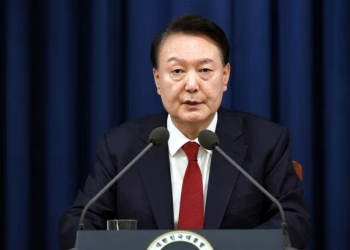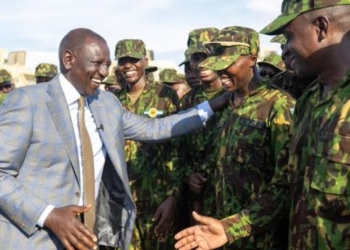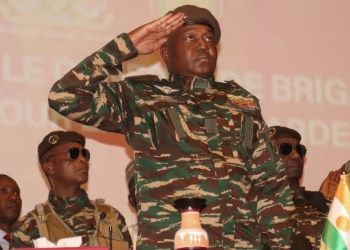The recent surge in abductions, arrests, and the violent killing of an opposition official in Tanzania is casting a shadow over the political optimism that accompanied President Samia Suluhu Hassan’s ascent to power in 2021.
There was widespread relief when Samia, the country’s first female president, assumed office, allowing opposition parties to hold rallies and voice criticism without fearing severe consequences. However, growing concerns suggest Tanzania may be regressing to the authoritarian climate of her predecessor, John Magufuli.
In just a few weeks, two high-ranking opposition leaders have been arrested multiple times, and another official, Ali Kibao, was abducted, murdered, and had his body acid-drenched by unidentified attackers.
“The political situation in Tanzania is extremely concerning,” remarked Tundu Lissu, the deputy leader of the main opposition Chadema party, speaking to the BBC just a week before his own arrest while his party was preparing to protest Kibao’s murder and the disappearance of other government critics. Lissu was later released on bail, as he had been previously after being detained ahead of a banned opposition rally in Mbeya.
Chadema reported that around 100 of its members were arrested to thwart the planned rally. “We are witnessing a resurgence of the repression and state-sponsored violence that characterized the period from 2016 to 2020,” Lissu stated.
In 2017, Lissu survived an assassination attempt, during which his vehicle was shot at multiple times. After receiving treatment abroad, he lived in exile in Belgium before returning last year to help “write a new chapter” for Tanzania following the lifting of a ban on rallies. He now views the promised reforms as superficial. “There have been no genuine democratic reforms,” he said, alleging that the recent violent incidents are politically motivated and linked to security forces, warning that worse may follow.
While the police deny any involvement, Emmanuel Nchimbi, secretary-general of the ruling CCM party, declined to comment.
This crackdown has undeniably tarnished the president’s image. Human rights organizations and Western diplomats are urging an immediate halt to “arbitrary detention” and calling for “independent and transparent investigations.” In response, the president cautioned “outsiders” against interfering in Tanzania’s affairs but condemned Kibao’s murder, ordering swift investigations.
“Our country is a democracy, and every citizen has the right to live,” she stated, expressing surprise at the intense backlash over Kibao’s death. “This is not right. Death is death. What we Tanzanians must do is stand together and condemn these acts.”
Political analyst Thomas Kibwana noted a lack of good faith between major political parties has stalled negotiations for reforms. He argued that while the opposition’s confrontational stance may garner votes, it also exacerbates tensions. Samia has suggested she is “very open to dialogue,” whereas Chadema has “shut the doors to negotiation” in favor of protests, he said. “Both sides need to come together and resume talks,” he added.
Initially, Samia focused on her widely publicized agenda of reconciliation, resilience, reforms, and rebuilding, earning praise for her efforts to bridge divides and initiate reforms without facing political pressure. Positive signs of her desired image remain, with billboards in the capital Dodoma proclaiming her as “the president of all Tanzanians,” and featuring her in conversations with Lissu, now a fierce critic. Similar billboards are seen in Dar es Salaam, showcasing her commitment to uniting across political lines, potentially signaling a campaign strategy ahead of upcoming local elections.
These elections will be her first significant test. Having served as Magufuli’s deputy, she inherited the presidency after his sudden death during the pandemic. Like Magufuli, she belongs to the CCM party, which has dominated elections since Tanzania’s independence in 1961.
According to the second-largest opposition party, ACT-Wazalendo, Samia’s reform agenda may be hindered by CCM’s fear of electoral defeat. “A CCM leader has indicated that if she had continued with her initial pace, she would lose the country to the opposition,” said party leader Dorothy Semu. “Perhaps she internalized the belief that reforming could lead to conceding power.”
However, Semu believes the political climate is better than during Magufuli’s tenure, even if some officials act as though they are doing a favor. “We now have a more open civic space. We can discuss politics freely, participate in rallies, and organize meetings,” she noted, adding that while there is hope as elections approach, there are no guarantees everything will proceed smoothly.
Lawyer and activist Fatma Karume emphasized that real reform depends on overhauling the country’s laws to reduce presidential power. “In Tanzania, we have what’s called an imperial presidency,” she remarked. “Now we just have a head of state who is less oppressive—let’s say, not as comfortable as Magufuli in using state power oppressively.”















